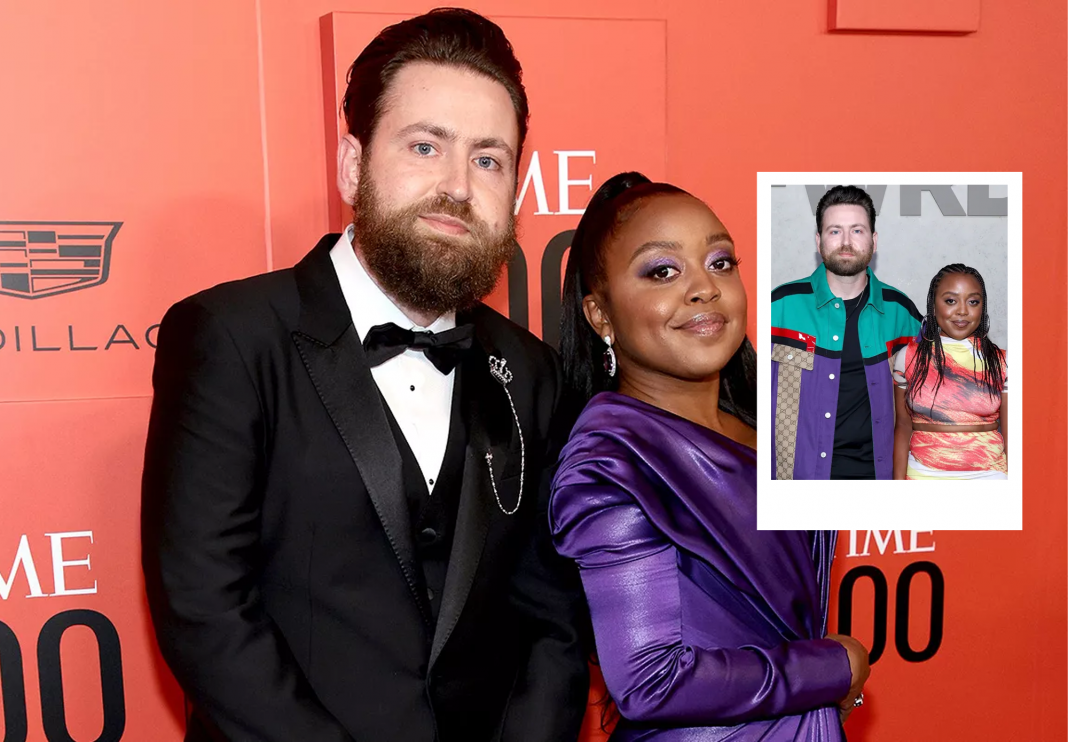In the spotlight for her Emmy-winning comedy Abbott Elementary, Quinta Brunson is learning that fame can be a double-edged sword. As she navigates a new chapter following a quiet divorce, the multi-hyphenate creator is opening up about what it means to keep ownership of her story—even when the world wants it first.
Living under the microscope
Quinta Brunson never intended for her divorce to be public news. But in a world where court documents are accessible with a few clicks and celebrity lives are routinely dissected online, even silence can be misinterpreted as an announcement.
In a recent Bustle cover story, the 35-year-old writer, actress, and showrunner got candid about the difficulty of preserving privacy in an increasingly invasive culture. “I remember seeing people be like, ‘She announced her divorce,’” Brunson recalled. “I didn’t announce anything.”
:max_bytes(150000):strip_icc():focal(999x0:1001x2):format(webp)/quinta-brunson-kevin-jay-anik-f2763c4781b74b4891dd034991a7f39d.jpg)
She filed for divorce from her now-ex-husband Kevin Jay Anik in March 2025, citing “irreconcilable differences” after three years of marriage. Despite public speculation, Brunson had kept the matter private until the legal filing surfaced. “No one wants [everyone] to know when you buy a house, when you move, when a major change happens in your personal life,” she said. “It’s just that that’s public record information. I hate all of it.”
Tuning out the noise
As Brunson’s star power has grown—fueled by the breakout success of Abbott Elementary—so too has public curiosity about her personal life. But the Philadelphia native has become more discerning about what she chooses to share. Her approach is clear: just because fans love her work doesn’t mean they’re entitled to every part of her.
“Even if you don’t give a lot, people want whatever they can get, and will take whatever they can get,” she said. The scrutiny has taught her to draw firmer boundaries, especially when it comes to online chatter. “Those are invisible voices that aren’t in your home with you, that aren’t in your personal life, that aren’t your friends,” she added.
While she values her audience and deeply appreciates their support, Brunson emphasized the importance of separating their expectations from her own lived experience. “You want to hear them, and you want to listen to them, but when it comes to matters of your personal life and decisions you make, you do have to tune it out.”
A quiet transformation
:max_bytes(150000):strip_icc():focal(623x231:625x233):format(webp)/quinta-brunson-husband-kevin-jay-anik-011123-1eee5afce78c42e7b3b0f70294cbf02f.jpg)
Part of reclaiming her autonomy involved making choices that reminded her who she is beyond the industry. One such decision? Cutting her hair. A symbolic shift that followed weeks of internal deliberation, it became a liberating reset for the creator who, at times, has felt boxed in by perception and image.
“When I finally cut it off, there was something very liberating about it,” Brunson shared. “Cutting my hair helped remind me that I am an artist first. I want to feel things. I want to do things. I want to make choices. I want to be a person.”
The transformation wasn’t just cosmetic—it was philosophical. By letting go of external pressures and aesthetic expectations, Brunson reaffirmed her identity as a creative first, not just a product of her public persona. “You can still change and evolve and start over,” she said. “That’s the whole point.”
Choosing self-preservation
As Brunson moves through this transitional phase, she’s become intentional about where she places her energy—and who gets access to it. “It’s a transitional time,” she acknowledged. “I think it’s true for me and my personal life, and it’s how I feel about myself, my career, and the world.”
:max_bytes(150000):strip_icc():focal(999x0:1001x2):format(webp)/quinta-brunson-newport-beach-TV-fest-063025-536066f8d97748c9bf517d2026412b58.jpg)
That shift includes focusing on “watering her own gardens”—her metaphor for nurturing the people and priorities that matter most. For Brunson, that means daily self-care, being present with loved ones, and resisting the pressure to explain herself to the world.
“I used to look at that as a selfish thing,” she admitted. “But there’s a reason they tell you to put your oxygen mask on first before you try to help someone else.”
A new chapter, on her terms
Brunson may be at the center of one of television’s most beloved shows, but she’s more than a headline, more than a character, more than a tabloid curiosity. In this next phase of her life, she’s prioritizing depth over disclosure, selfhood over spectacle.
By asserting boundaries and embracing change, she’s not only protecting her peace—she’s redefining what power and authenticity look like in an era of constant exposure. As Brunson reminded us, not every story needs to be told immediately, and not every detail needs to be explained. Sometimes, the bravest act is keeping something for yourself.



